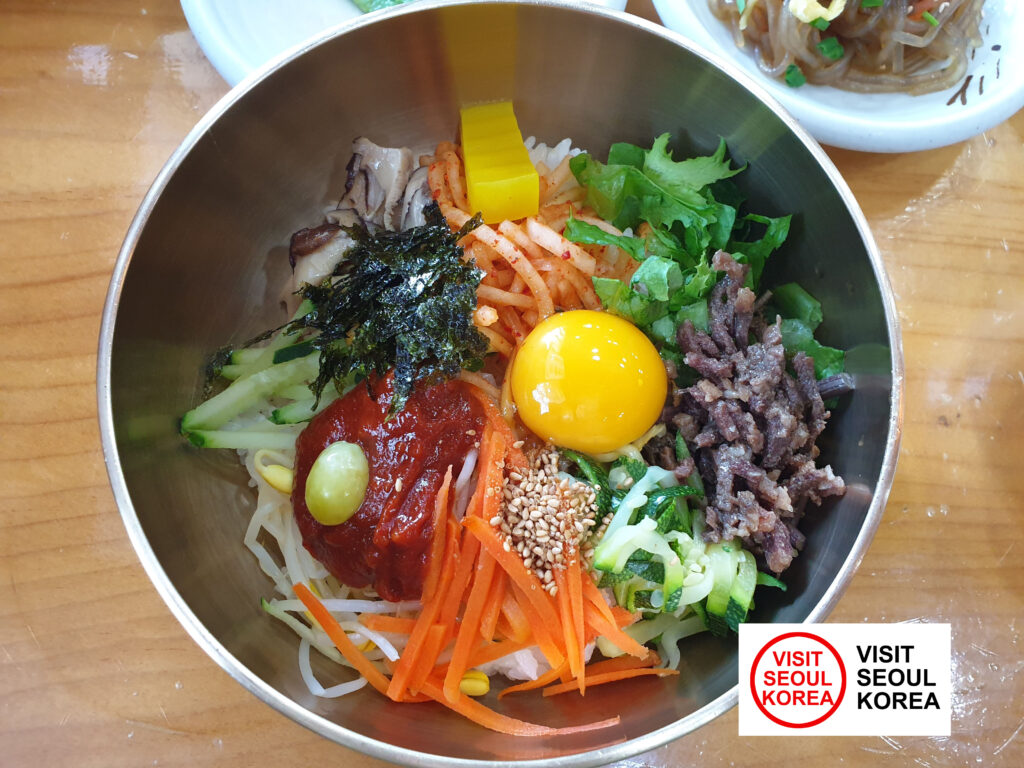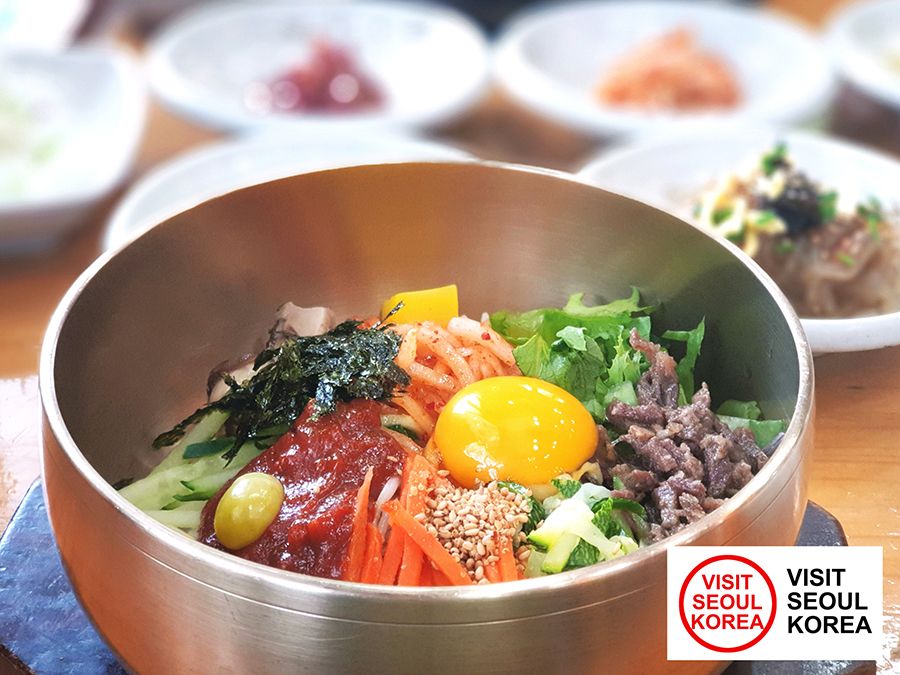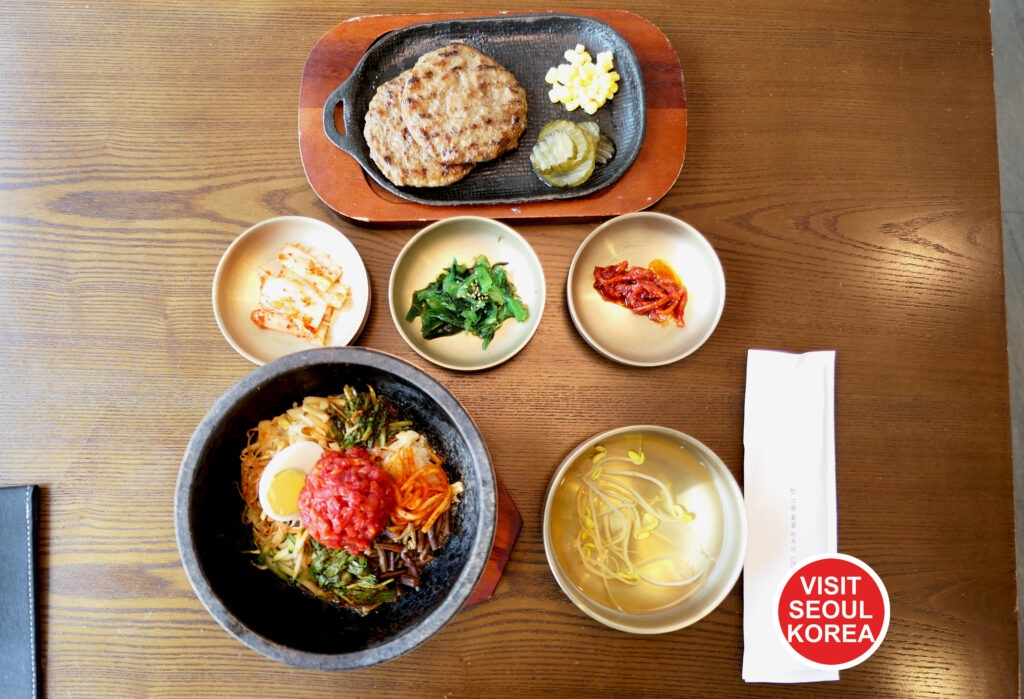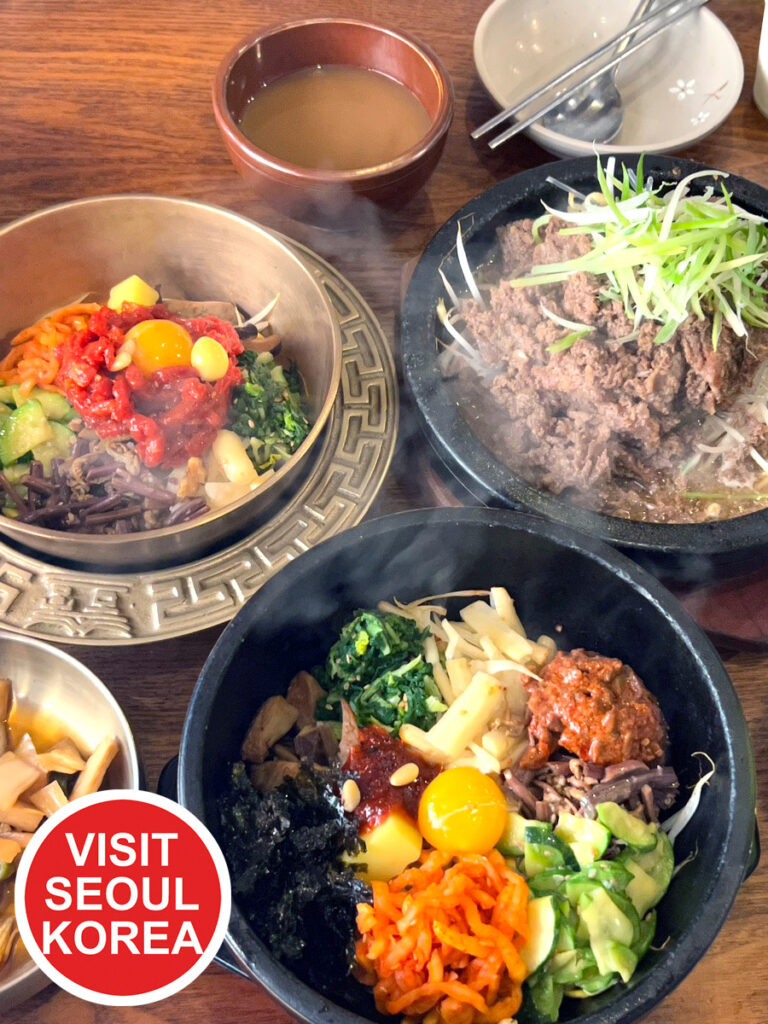
Bibimbap is a beloved traditional Korean dish that combines an assortment of fresh vegetables and herbs with rice and gochujang (red pepper paste). Sometimes, minced beef is added for extra flavor. Common vegetables include bean sprouts, bracken, mushrooms, bellflower root, spinach, carrots, and cucumber, all topped with a fried or raw egg. Just before mixing, a dash of sesame oil is added for aroma and richness, creating a delicious blend when stirred together.

Bibimbap is particularly popular among vegetarians due to its predominantly plant-based ingredients, aside from the egg and meat. While the classic recipe includes these traditional toppings, bibimbap can be equally tasty with various other vegetables.

You can also personalize bibimbap by using your favorite ingredients, making it a versatile meal. It’s delicious served hot or cold. One popular variation is Dolsot Bibimbap 돌솥 비빔밥, where it’s served in a sizzling stone bowl to enhance the warmth and texture.

In addition to its great taste, bibimbap is visually stunning, with its vibrant, colorful ingredients beautifully arranged. This dish is especially famous in Jeonju 전주, where you’ll often find it on menus as Jeonju Bibimbap 전주 비빔밥. With its nutritious ingredients and balanced flavors, bibimbap is celebrated as a healthy food choice and a feast for the eyes.
| Description | |
|---|---|
| Must-Try Dish | Bibimbap is a beloved traditional Korean dish that combines various vegetables and rice with gochujang. |
| Ingredients | Common ingredients include bean sprouts, bracken, mushrooms, bellflower root, spinach, carrots, and cucumber, often topped with an egg. |
| Personalization | Bibimbap can be customized with your choice of ingredients, making it versatile and delicious hot or cold. |
| Dolsot Bibimbap | A variation served in a sizzling stone pot, enhancing the meal’s warmth and texture. |
| Visual Appeal | The dish is visually stunning, featuring a colorful arrangement of ingredients that adds to its appeal. |
| Regional Fame | Particularly famous in Jeonju, where it is often referred to as Jeonju Bibimbap, highlighting its cultural significance. |
| Health Benefits | Bibimbap is celebrated as a nutritious option, showcasing a balance of flavors and ingredients. |
Leave a Reply